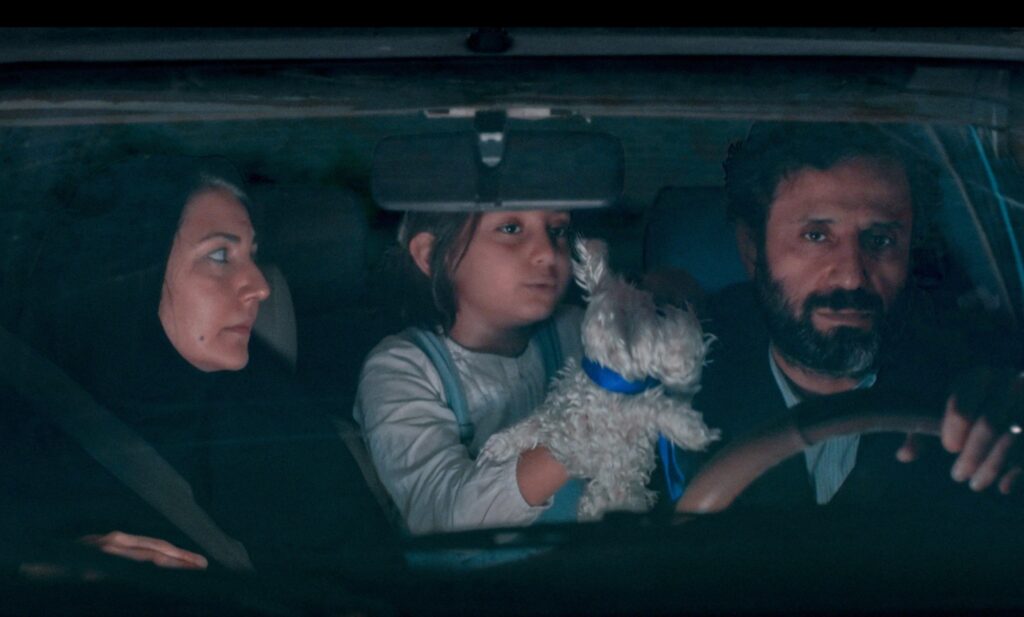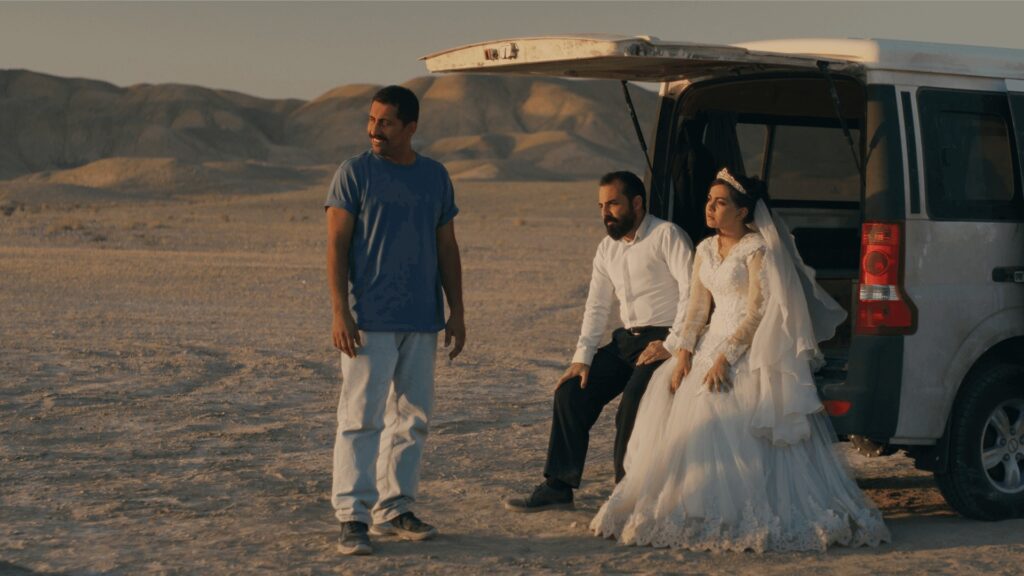It Was Just An Accident reinvents the revenge thriller as a layered character study about forgiving the people who committed the worst crimes possible. A car breaking down in Iran creates a domino effect that leads to one of the year’s most surprising crowd-pleasers.
The film opens with a man (Ebrahim Azizi, the film’s only professional actor), his pregnant wife, and his young daughter driving along. They seem like a happy family, loving and fun, and in any other film, they would be the protagonists. But, as It Was Just An Accident reminds audiences, not everyone is as they seem. After the car comes to a spluttering stop, the man enters a local car repair shop in the hopes of getting help.
It slowly and horrifyingly dawns on the mechanic’s assistant, Vahid (Vahid Mobasseri), that the man who has just walked in was a state prisoner who cruelly tortured him under the extremist government. Pure hatred takes over him, and before his brain can kick into gear, the man, who he not-so-friendingly refers to as Peg Leg due to his squeaky prosthetic leg, is tied up in the back of his van.

It Was Just An Accident Plays With Audience Perception
It Was Just An Accident smartly introduces the audience to Peg Leg as a responsible father with an adorable child. But Valid sees him in a very different way, he sees him as the cruel torturer who left unhealed mental scars. The man swears he isn’t the torturer Valid is looking for, forcing the audience to evaluate their own preconceived notions on judging people.
Vahid can’t be sure that Peg Leg is who he claims to be, so his one-man mission turns into a group project. The first person he visits is wedding photographer Shiva (Maryam Afshari), who is in the middle of a photoshoot with bride-to-be Golrokh (Hadis Pakbaten), who she met while in jail. Even the day before the nuptials, the women are happy to drop everything to go on a vengeance-led mission.
The women of It Was Just An Accident reflect the rapid change of the lives of women in Iran. They are wonderfully free women who make their own choices in life, a testament to the years of rebellion against their oppression in Iran. It’s even director Jafar Panahi’s first film to show female characters not wearing the hijab.
On for the ride is Golrokh’s husband to be (played by Panahi’s nephew Majid) and a livewire friend, Hamid (Mohamad Ali Elyasmehr). Together, they decide to uncover if this man really is their torturer and get confirmation before burying him at the bottom of a pit.
The film creates a well-realised group of people with heartbreaking pasts, all looking at the same incident from different points of view. Panahi was inspired by his real-life friends and people who he met throughout the years in Iran. Everyone is this group is played by non-professional actors, although all their performances are as rich and layered as any you’ll see this year.
Panahi understands that the film may lose some of its effectiveness if it were two hours of trauma. Interjecting comedy into proceedings makes these characters feel real and gives the story much-needed light relief. After all, they are not highly trained black ops or professional bloodthirsty vigilantes. They are normal people who bicker, make mistakes, and run out of petrol at the worst possible time. Even when they want to live out their most violent fantasies, they never become dislikable.

A Cathartic Tale Of Forgiveness
It Was Just An Accident, expertly addressing the morality of revenge. How different are they from the regime if they kill this man, who was technically just following his own orders?
On paper, It Was Just An Accident is a heavy film about military oppression and the scars of the regime never fading, not even when the regime does. But the film is written in such a light, freeing way that it never becomes dense with political motifs. A surprise crowd-pleaser, the film is full of laughs and joy, but it never forgets the shadow of cruelty the country still lives in.
Director Jafar Panahi has turned a story set in one of the harshest authoritarian regimes into a blackly comic tale about forgiveness. He weaves tropes associated with violent revenge movies and breaks down their moral code. The cathartic and humane nature of the storytelling is even more extraordinary when you consider that Panahi was arrested in 2010 and ordered by the Iranian regime not to make films or travel for 20 years. The director has never stopped filmmaking and has consistently defined the regime’s orders.
For more Reviews, make sure to check back to That Hashtag Show.

![It Was Just An Accident- A Blackly Comic Spin On A Revenge Thriller [Review]](http://18.211.146.234/wp-content/uploads/2025/11/8bfc4140-5bd9-4158-9894-1aac89737b8a-1280x640.jpg)
![Sonic The Hedgehog 2 – A Nearly Flawless Sequel [Review]](http://18.211.146.234/wp-content/uploads/2022/04/277311809_1058281204902581_6821481502628757584_n-1-440x264.png)


![V/H/S/94 – Horror Anthology Returns In Full Force [Fright-A-Thon Review]](http://18.211.146.234/wp-content/uploads/2021/10/244179902_571149514334158_8297245183243299411_n-440x264.png)